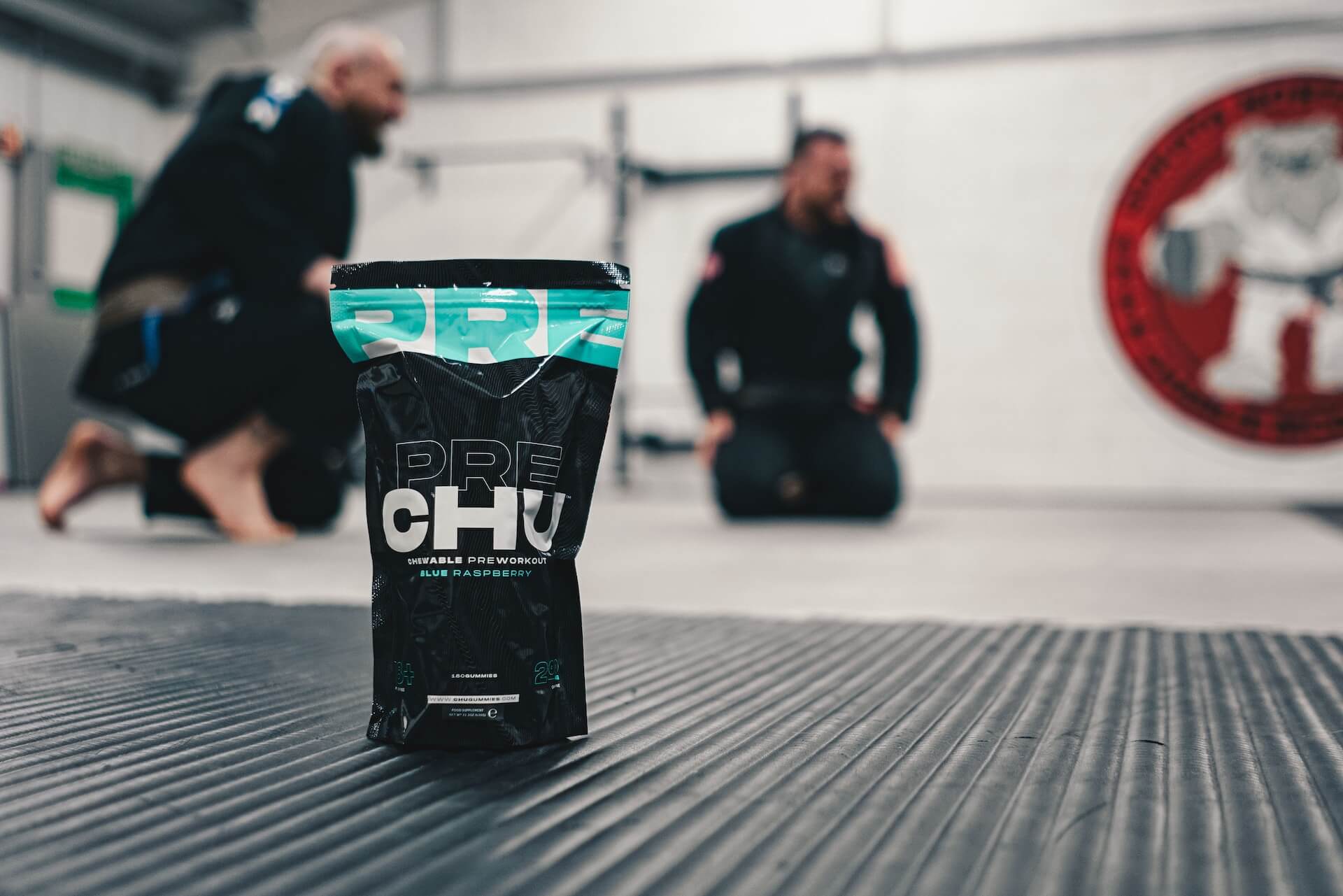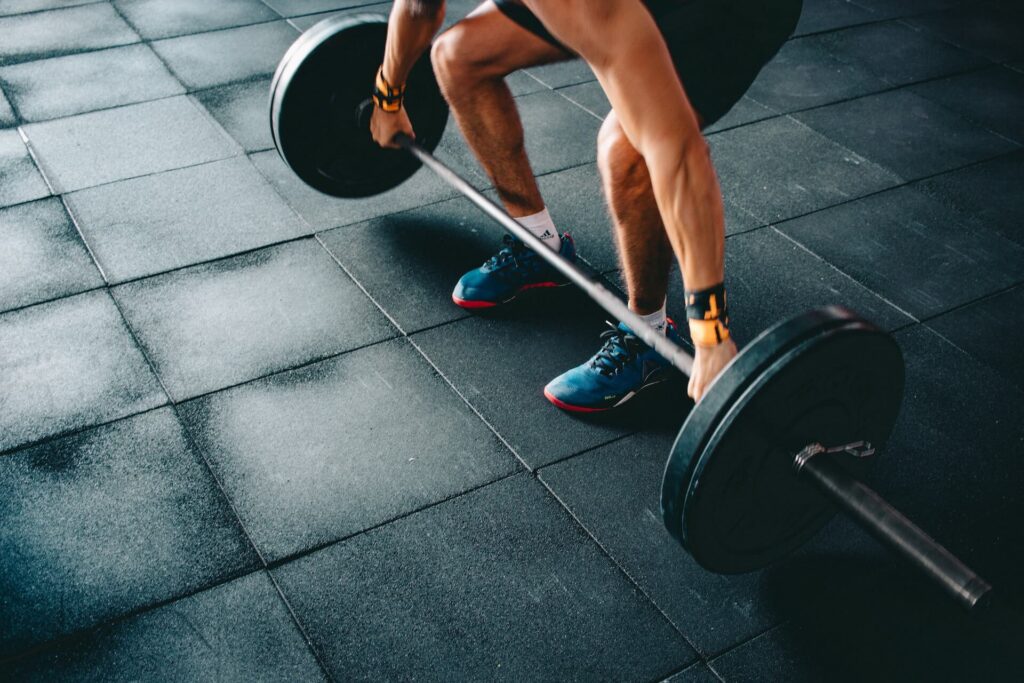Settling the Debate: Is Pre-Workout Bad for You?
Oct 19, 2023

As an Amazon Associate, Modded gets commissions for purchases made through links in this post.
When you’re working out, you want to put on the best show possible for yourself and anybody watching. Heightening your performance each session is vital for getting the most from your workouts. Some people use pre-exercise supplements, while others are a little wary. Is pre-workout bad for you? Is it bad for your heart? This product can be a worthy tool for your workouts, so it’s worth a closer look. Let’s talk about this trend, the side effects and the benefits.
What Is Pre-Workout?

Pre-workout is a supplement that people, especially athletes and bodybuilders, use to improve their athletic performance. As the name suggests, you take the product shortly before your workout. The primary ingredient in this supplement is caffeine, so each serving size energizes you and prepares you for the work ahead.
Pre-workout is a catch-all term for supplements used to enhance performance, but there are different types you should know. For example, the active ingredients will differ based on your chosen brand and flavor. Here are some of the common ingredients you’ll see in these products:
- Caffeine
- Taurine
- Vitamin B12
- Beta-alanine
- Creatine
- L-citrulline
- N-acetyl L-tyrosine
- Tyrosine
Is Pre-Workout Bad for You?
With all that being said, is pre-workout bad for you? Nope! It’s a safe supplement to take to improve your performance. The average adult can take a pill or scoop of powder and be perfectly fine when they hit the gym. However, there are some things you should consider to ensure your safety when taking these supplements.
Find Your Favorite
First, finding the pre-workout supplement that fits your workout needs is essential. For example, are you building muscle through your workouts? Find a pre-workout supplement with creatine or BCAAs. These active ingredients are vital for increasing muscle mass in your biceps, triceps and everywhere in between. Also, it helps when the powder tastes good so you enjoy what you’re consuming.
Take a Low Dosage
Is this your first time taking a supplement? Your first scoop or pill should start at a low dosage. The last thing you want is to overdo it at the gym. These workout products may bring side effects, so take a low dosage to minimize these symptoms and stay upright at the gym.
Mix With Water
Taking your supplement shouldn’t be a burden. Some people dry-scoop the powder, but this tactic is ill-advised. Health experts say dry-scooping can lead to heart palpitations, lung issues and other serious medical problems. Mix your powder with water or some form of juice to make it easier on your body. Regardless, hydrating before your workout is always a bright idea.
Does Pre-Workout Have Side Effects?
Pre-workout advances your performance at the gym. You may even get your personal best lifts after taking a scoop! Unfortunately, there are some effects to taking this supplement. Here are five you should watch out for.
Jitters
At its core, pre-workout is a caffeine supplement. Taking a scoop of creatine or other supplements is similar to drinking an espresso. The active ingredients get your body jumping, but they can do too much to your body if you’re not careful. Jitters are a common side effect of this supplement, especially if you’re sensitive to caffeine.
Put it in perspective by considering the caffeine content. Your average cup of coffee has about 80mg to 100mg of caffeine. Conversely, pre-workout contains between 150mg and 300mg, so one serving is equivalent to three or four cups of coffee. Take it easy and watch your caffeine content throughout the day.
Increased Blood Pressure
Caffeine is a stimulant, explaining why your pre-workout gives you so much energy. This ingredient constricts your blood vessels to constrict, thus heightening your blood pressure. Be careful with pre-workout if you have a heart condition. If necessary, consult your doctor before taking any products. Fitness is about putting your health and body first, so start at the physician’s office before you hit the gym.
Digestion Problems
Digestion is another symptom people run into with pre-workout. Again, caffeine is a significant culprit here. Drinking coffee and taking this supplement can irritate your stomach and cause upset stomach and diarrhea. Be careful with these products, especially if you have a sensitive stomach. Irritable bowel syndrome (IBS) can make you vulnerable to specific ingredients, so find one that fits your needs.
If caffeine can’t do it for you, consider other options for your pre-exercise snack. For example, fruit and other simple carbohydrates are typically easy to digest and make exercise easier. Is pre-workout bad for you and your digestion? For most people, it can cause problems. Try sticking to low doses and drinking plenty of water.
Dehydration
Hydration is crucial for your exercise, whether cardio, strength training, pilates or anything else. Unfortunately, these supplements can cause dehydration because it’s a diuretic. Like coffee, pre-workout increases your need for restroom use, causing fluid loss. Plus, some active ingredients increase your sweating due to the faster blood flow in your muscles.
Headaches
Dehydration, unfortunately, brings headaches to the gym. Pre-workout makes you thirsty like you’re sipping whiskey with friends on a Saturday night. Use the same rule of thumb for your pre-workout as you’d use with alcohol. Pair each serving with at least one cup of water. If you don’t stay hydrated, you could experience headaches. Working out, especially with heavy weights, requires complete concentration. You don’t want headaches throwing you off your game.
What Are the Benefits of Pre-Workout?
Pre-workout has some side effects and disadvantages. Still, there are reasons why bodybuilders and gym rats can’t get enough of it. Here are three benefits to taking pre-workout.
More Energy
People drink caffeine to wake themselves up each morning, so pre-workout has the same effect. This supplement increases your energy levels and prepares you for whatever exercise is in front of you. Do you work out early in the morning? Does your 5 a.m. wake-up call make it hard to get active? Try using pre-workout to see what happens to your body. You’ll likely have more energy to knock out your workout.
Enhanced Performance

Energy is essential for your workouts because it improves your performance. As mentioned earlier, pre-workout increases blood flow. The bright side of this effect is it makes your workouts easier to accomplish, helping you do more reps on heavier weights. If you don’t take it from us, check out this 2020 International Journal of Environmental Research and Public Health study. The researchers concluded the pre-workout supplements improved body strength performance in men and benefited their anaerobic performance.
Building Muscle

Is pre-workout bad for you after the gym? Nope! The supplement is supposed to help you before your workouts, but the benefits extend well past your exercise window. Your supplement may increase your muscle mass, depending on the product you take. For example, creatine increases lean body mass and gives more energy to your muscles. Amino acids are also helpful in advancing your muscle growth and reducing soreness afterward.
Is Pre-Workout Bad for You? Wrapping It Up
Fitness trends are everywhere, and companies will say anything for your credit card number. Pre-workout is one of these popular trends because it’s supposed to increase your performance. However, the side effects make people ask if pre-workout is bad for you. Ultimately, these supplements are safe if you stay hydrated and keep the dosage low. Speak with a physician if you have any questions about the side effects and your health.





